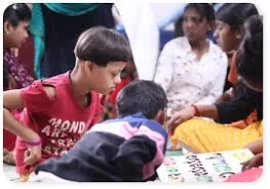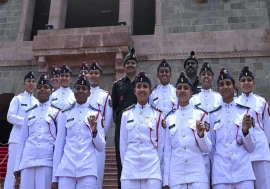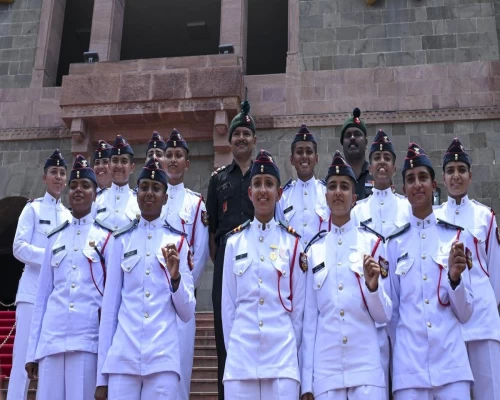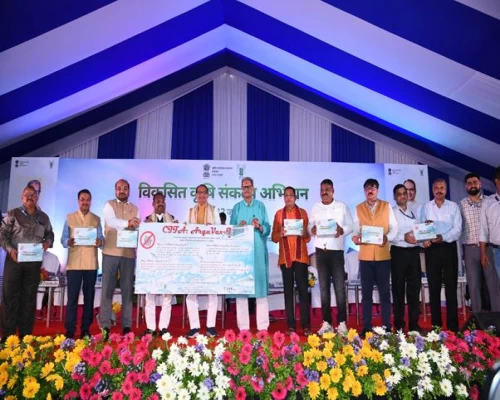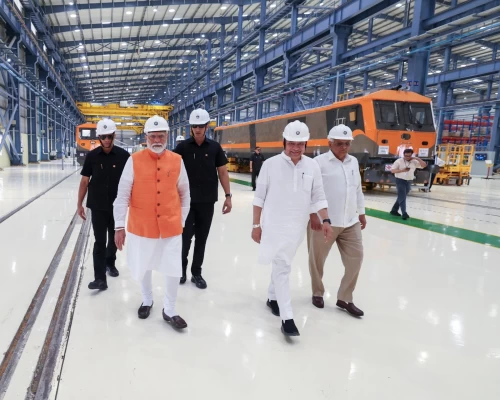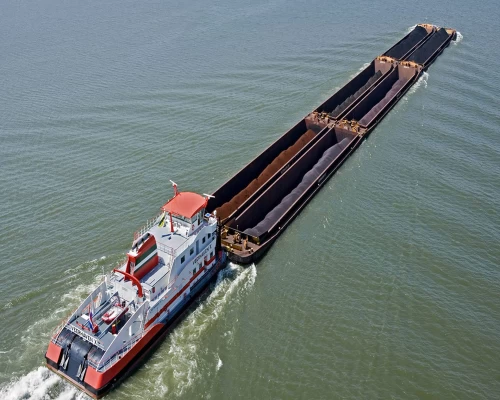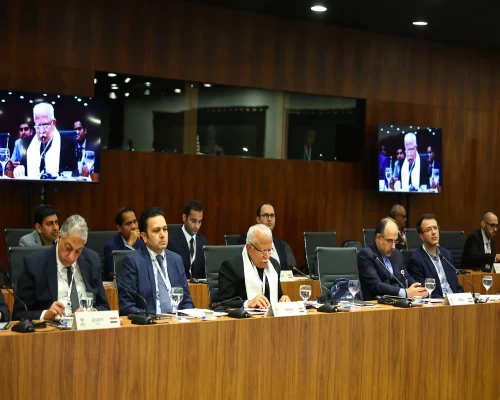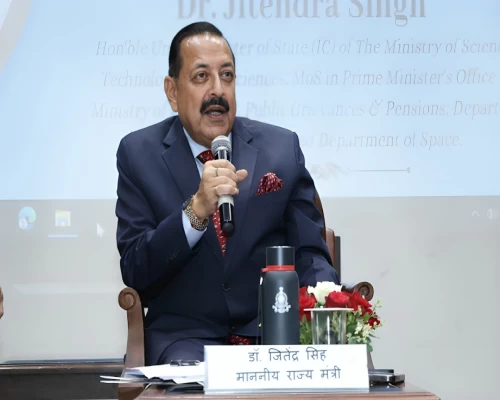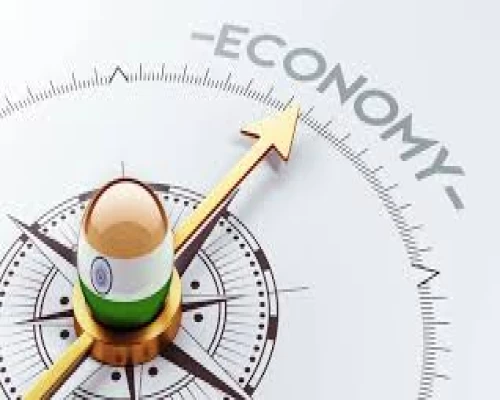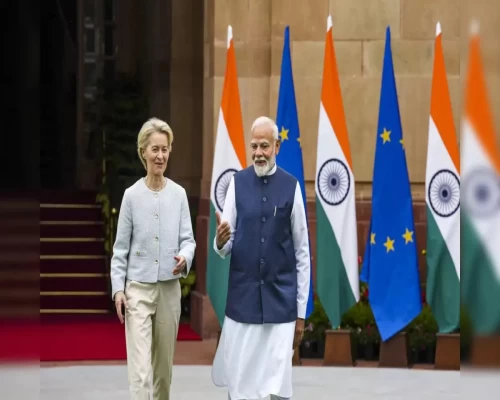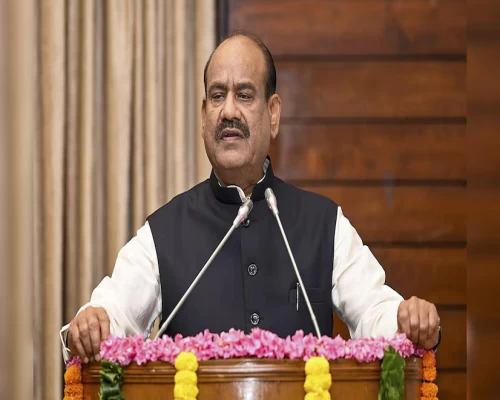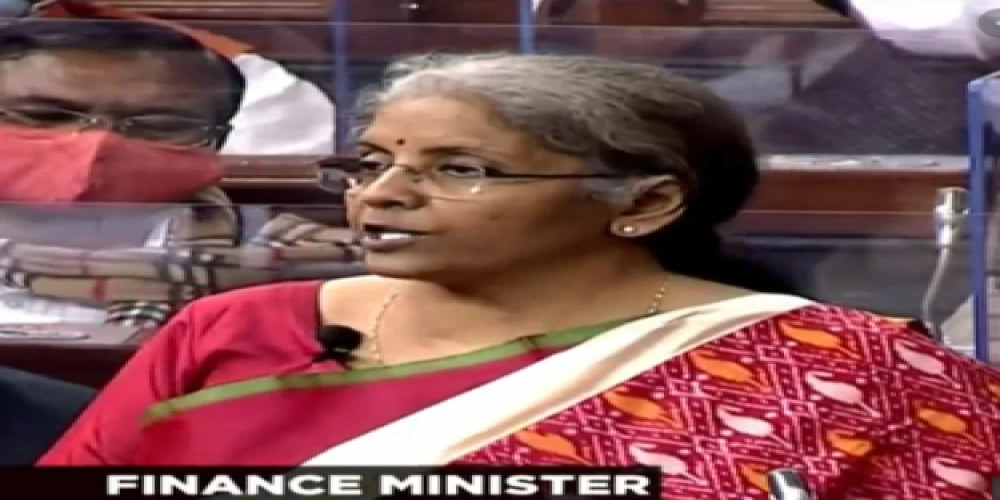
New Delhi: From infrastructure to innovation, agriculture to port, highways to railways, the Union Budget 2021-22, which Finance Minister Nirmala Sitharaman presented in Parliament on Monday, is very much rooted in the idea of India’s inclusive development. Coming in the backdrop of reverses caused by Covid-19, the Budget outlines the road map to build a resilient and Atma Nirbhar Bharat.
Sitharaman announced a slew of measures for agriculture sector as part of inclusive development for aspirational India, which will give a big boost to rural development. To provide adequate credit to our farmers, the Finance Minister enhanced the agricultural credit target to Rs 16.5 lakh crore in FY 22. She further said that the government will focus on ensuring increased credit flows to animal husbandry, dairy, and fisheries.
The Finance Minister also announced the enhanced the allocation to the rural infrastructure development fund from Rs 30,000 crore to Rs 40,000 crore.
Sitharaman proposed to double micro irrigation fund, started with a corpus of Rs 5,000 crore under the NABARD by augmenting it by another Rs 5,000 crore. To boost value addition in agriculture and allied products and their exports, Sitharaman proposed to increase the scope of ‘operation green scheme’ that is presently applicable to tomatoes, onions, and potatoes to be enlarged to include 22 perishable products.
The finance minister said that around 1.68 crore farmers are registered and Rs 1.14 lakh crore of trade value has been carried out through e-NAM. Keeping in view the transparency and competitiveness that e-Nam has brought into the agricultural market, the Finance Minister proposed to integrate 1,000 more mandis with e-NAM to bring transparency and competitiveness. The Finance Minister proposed to make available the agriculture infrastructure fund to APMCs for augmenting their infrastructure facilities.
Public transport system in urban areas got a major boost in the Budget for the year 2021-22. Sitharaman said that the government would work towards raising the share of public transport in urban areas through expansion of metro rail network and augment of city bus service. A new scheme will be launched at a cost of Rs 18,000 crore to support the augmentation of public bus transport services. It will facilitate deployment of innovative PPP models to enable private sector players to finance, acquire, operate and maintain over 20,000 buses.
More than 15,000 schools to include all components of the National Education Policy (NEP) will be qualitatively strengthened and enable them to emerge as exemplar schools in their regions, handhold and mentor other schools to achieve the ideals of the policy. She also stated that 100 new Sainik Schools will be setup in partnership with NGOs, private schools and States. The Finance Minister also proposed to set up a Higher Education Commission of India as an umbrella body having 4 separate vehicles for standard setting, accreditation, regulation, and funding.
To strengthen the overall research ecosystem of the country, the Union Budget FY 2021-22 announced a slew of new initiatives to boost innovation and R&D in the country. While presenting the Budget in Parliament on Monday, Union Minister for Finance and Corporate Affairs Nirmala Sitharaman proposed initiatives covering digital payments, space sector and deep ocean explorations.
The Finance Minister proposed an outlay of Rs 50,000 crore, spread over five years, for the National Research Foundation. “It will ensure that the overall research ecosystem of the country is strengthened with focus on identified national-priority thrust areas,” she added. She informed the house that there has been a manifold increase in digital payments in the recent past and there was a need to take steps to carry forward this momentum.
Rs 1,500 crore has been proposed for a scheme that will provide financial incentive to promote digital modes of payment and further boost digital transactions. A new initiative called National Language Translation Mission (NTLM) has been proposed that will digitize the wealth of governance-and-policy related knowledge on the Internet and be made available in major Indian languages.
The Central government has committed nearly Rs 1.97 lakh crore in the next five years starting FY 2021-22 to help bring scale and size in key sectors, create and nurture global champions and provide jobs to our youth. Sitharaman said that India’s manufacturing companies need to become an integral part of global supply chains, possess core competence and cutting-edge technology to become a $5 trillion economy and for this, our manufacturing sector has to grow in double digits on a sustained basis.
With an aim to rationalize custom duty structure, ease compliance and give impetus to domestic manufacturing, the Union Budget 2021-22 has several indirect tax proposals. She said the record GST collections have been made in the last few months. She said several measures have been taken to further simplify the GST. The capacity of GSTN system has been announced. Deep analytics and Artificial Intelligence have been deployed to identify tax evaders and fake billers, launching special drives against them. The Finance Minister assured the House that every possible measure shall be taken to smoothen the GST further and remove anomalies such as the inverted duty structure.
On the issue of custom duty policy, the Finance Minister said that it has the twin objectives of promoting domestic manufacturing and helping India get on to global value chain and export better. She said that the thrust now has to be on easy access to raw materials and exports of value added products. In this regard, she proposed to review 400 old exemptions in the custom duty structure this year. She announced that extensive consultation will be conducted and from October 1, 2021, a revised custom duty structure free of distortions will be put in place.
The Finance Minister announced withdrawal of a few exemptions on parts of chargers and sub-parts of mobiles. Further, some parts of mobiles will move from nil rates to a moderate 2.5 per cent. She announced reducing custom duty uniformly to 7.5 per cent on semis, flat, and long products of non-alloy, alloy and stainless steel. The minister proposed exempting duty on steel scrap for a period up to March 31, 2022. Sitharaman also revoked ADD and CVD on certain steel products. She announced deduction in duty on copper scrap from 5 per cent to 2.5 per cent.
The Finance Minister said that a phased manufacturing plan for solar cells and solar panels will be notified to build up domestic capacity. She announced raising duty on solar inverters from 5 per cent to 20 percent and on solar lanterns from 5 per cent to 15 per cent. The Finance Minister, in her Budget speech, said that there is immense potential in manufacturing heavy capital equipment domestically. She said that the rate structure will be comprehensively reviewed in due course.
The Budget proposes certain changes to benefit MSMEs which include increasing duty on steel screws, plastic builder wares and prawn feed to 15 per cent. It also provides for rationalizing exemption on import of duty free items as an incentive to exporters of garments, leather and handicraft items. It also provides for withdrawing exemption on imports of certain kind of leathers and raising custom duty on finished synthetic gem stones.
To benefit farmers, the Finance Minister announced raising custom duty on cotton to 10 per cent and on raw silk and silk yarn to 15 per cent. She also announced withdrawing end-used based concessions on denatured ethyl alcohol. The Minister proposed an Agriculture Infrastructure and Development Cess (AIDC) on a small number of items. “While applying the cess, we have taken care not to put additional burden on consumers on most items,” she said.
On the excise side, AIDC of Rs 2.5 per litre has been imposed on petrol and Rs 4 per litre on diesel. However, the basic excise duty and special additional excise duty (SAED) rates on petrol and diesel have been reduced in the budget so that overall consumer does not bear any additional burden. Unbranded petrol and diesel will attract BED of Rs 1.4 and Rs 1.8 per litre respectively while SAED on them will be Rs 11 and Rs 8 per litre respectively. /BI/


